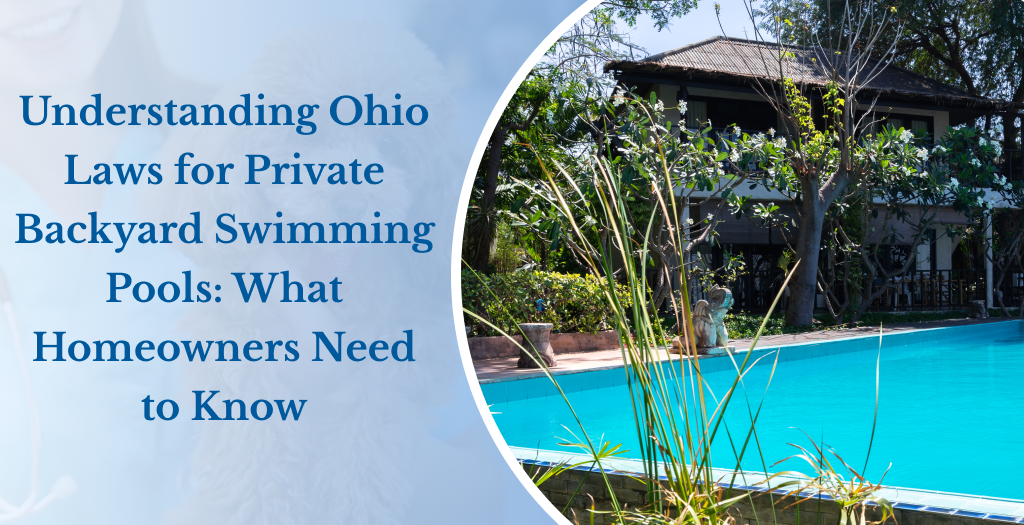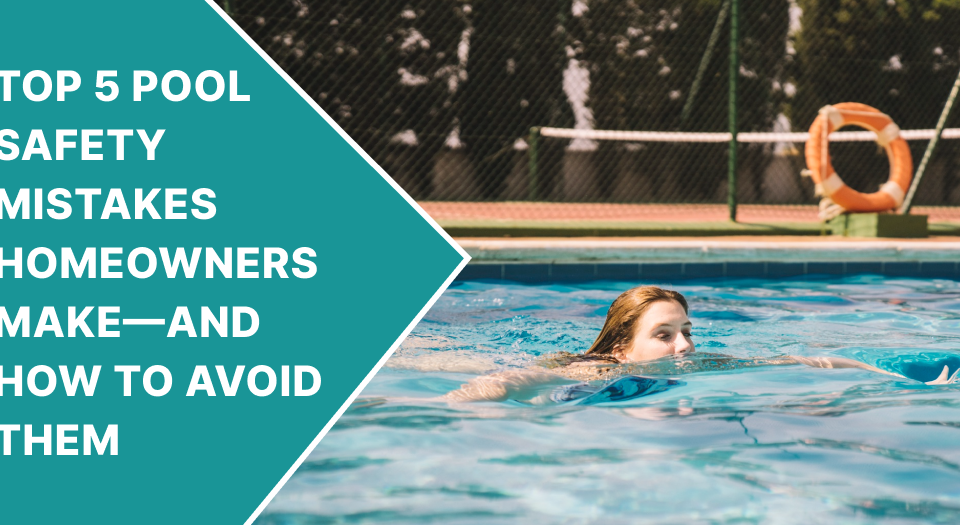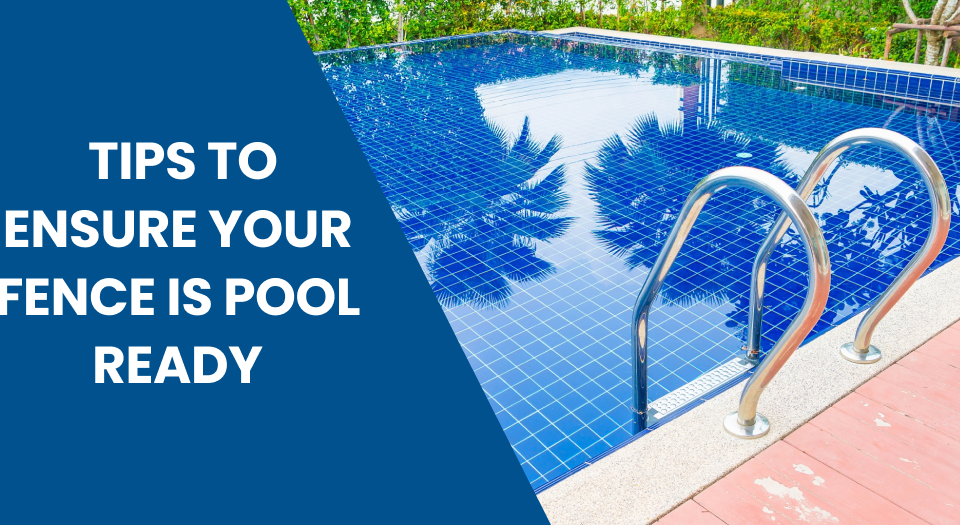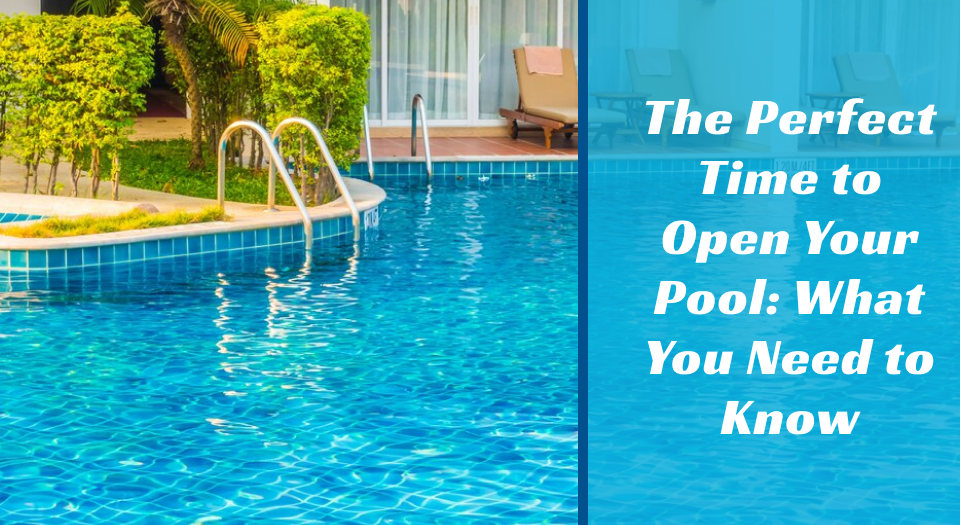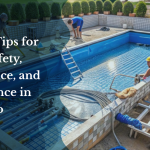
Essential Tips for Pool Safety, Maintenance, and Compliance in Ohio
October 15, 2024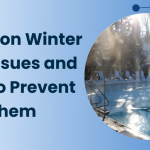
Common Winter Pool Issues and How to Prevent Them
November 15, 2024During summer, everyone wants to take a plunge in the pool. Many homeowners in Ohio dream about relaxing in their private backyard swimming pool. However, with fun also comes great responsibilities. So, if you are considering getting a pool, you need to understand the legal requirements and regulations regarding the maintenance and installation of the pool. This blog will give you an overview of Ohio pool laws to help homeowners understand the importance of pool ownership.
Swimming Pool in Ohio
In Ohio, swimming pools are structures designed to hold water for bathing, swimming, or other recreational purposes. It includes in-ground, above-ground, and inflatable pools that can hold more than 24 inches of water. Thus, it is crucial to understand the definition as it determines what type of regulations apply to your pool.
Local Regulations and Zoning Laws
Before installing a pool, homeowners must check with their local zoning office or municipal regulations. Ohio does not have a statewide pool code, meaning the rules may vary significantly from one locality to another.
Here are the key factors you should consider:
Zoning Restrictions: Specific residential zones may have restrictions depending on the type and size of the pools allowed.
Permitting: Few municipalities need a permit before the pool construction. Homeowners must inquire about any necessary permits and the process to obtain them.
Setback Requirements: Most areas have specific distance requirements between the pool, buildings, property lines, and other structures.
Safety Regulations of Pools
Laws in Ohio emphasize safety when we talk about swimming pools. Homeowners must be aware of the following safety regulations:
Safety equipment: While not always mandated, equipment like pool alarms, ropes, and life rings are advised, mainly if non-swimmers or children use the pool.
Requirements for safety fence: Most local laws need pools to be enclosed by a fence that meets specific design and height standards to prevent unauthorized access. The fence must be four feet tall and feature a self-latching, self-closing gate.
As per the American Red Cross, drowning is one of the top causes of unintentional death for children. If you implement the right safety measures, you can mitigate the risks.
Pool Maintenance and Liability
Proper maintenance of a pool is not only essential for safety but also for compliance with local health regulations. Homeowners need to understand the following:
Water quality: Regular pool water treatment and testing are essential to prevent health hazards associated with algae and bacteria.
Liability Insurance: Homeowners must consider adding liability coverage to homeowners’ insurance policies. It helps to get protection against potential lawsuits that may result from accidents that occur around or in the pool.
Compliance and Inspection of the Pool
Most local jurisdictions need inspections of new pool installations that can help to ensure compliance with building codes and safety standards. Homeowners must schedule these inspections while keeping records of compliance. It can help them to avoid any potential legal issues in the future.
Considering Ohio Seasons for Pool
The climate of Ohio means that the use of pools will mostly be seasonal. Homeowners will need to prepare for winterization of the pool, which will help them to prevent damage from freezing temperatures. Additionally, local regulations must take specific steps to close a pool for the season.
Neighbourhood Rules and Community Associations Regarding Pools
You must understand the pool rules if you live in a community with a homeowners association (HOA). Few HOAs have strict guidelines that may include maintenance responsibilities, design standards, and restrictions on pool use.
Conclusion
If you own a private backyard swimming pool in Ohio, it is the best addition to your home, offering relaxation and fun for friends and family. However, complying with and understanding regulations and local laws is crucial to ensure an enjoyable and safe experience.
In addition to the legal considerations, staying informed and updated about safety is essential. As per the CDC, more than 3,500 unintentional fatal drownings occur every year in the US, underscoring the need for safety measures.
So before considering the pool project, consult local authorities and seek professional advice. It will help you ensure the pool meets all the legal requirements. Staying informed about the zoning requirements, maintenance responsibilities, and safety regulations, homeowners may take necessary steps to protect their investments while enjoying the pool for years.
For the best pool fences in Ohio, contact Life Saver Pool Fence and get the top pool fence you choose.

